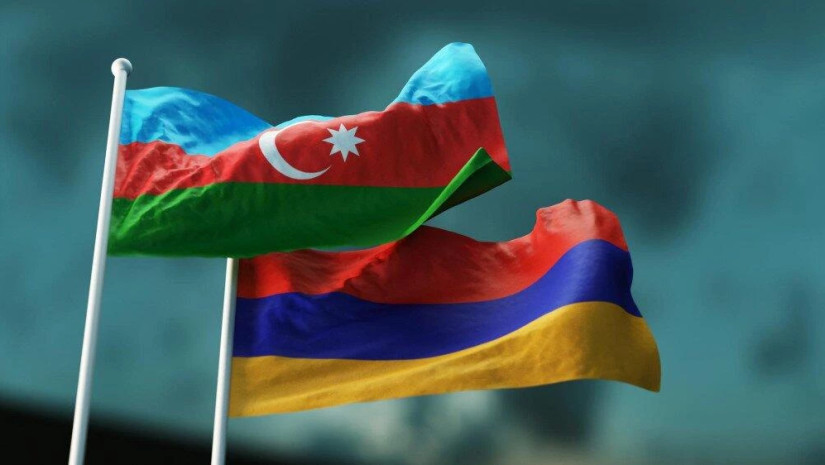The uncertain borders between Armenia and Azerbaijan
The Armenian National Assembly held an extraordinary closed-door session, requested by opposition parties, to discuss border demarcation procedures in the disputed territories. Baku now insists on the 'restitution' of eight villages in the Tavowš region, while Yerevan claims that Azerbaijan has occupied 'all or part' of 31 of its localities.
Yerevan (AsiaNews) - The conflict over Nagorno Karabakh has been behind us for months now, although much tension remains in Armenia over the management of the many refugees from Artsakh, but relations with Azerbaijan are unable to achieve true stability, with continuous border skirmishes, mutual accusations of "provocations" and claims of towns, villages and lands.
The speaker of the Yerevan parliament, Alen Simonyan, has reiterated again in recent days that "there is not even talk of ceding other Armenian territories to Azerbaijan", responding to Baku's demands to hand over some population centers.
The Armenian National Assembly then held an extraordinary session behind closed doors, requested by the opposition parties Armenia and I have the Honor, which represent a third of the deputies, to discuss the procedures for delimitation and demarcation of the borders between the two countries in perpetuity conflict.
Negotiations on this matter have never started, which has made the conclusion of any peace agreement so far impossible. Deputy Prime Minister Mger Grigoryan declared that "until the problems of security, social coexistence and the principles of law are resolved, the decision to begin negotiations on the delimitation cannot be made."
The opposition asked for a debate open to the public, but the majority party of the Civil Agreement imposed secrecy for reasons of "national security", forcing deputies to hand over their cell phones and excluding from the chamber all those who do not have access to information secret.
The thorniest issue concerns the willingness expressed by the Yerevan government to concede during the negotiations a part of the Tavowš region in the north-eastern part of the country, which has the city of Idževan as its capital, what the opposition considers "a violation of international norms and the constitution itself".
According to Baku, there are eight villages in the area under Armenian control which should actually be assigned to the Azerbaijani administration.
As the Azerbaijani deputy prime minister Šakhin Mustafaev specified, four of these villages (Baganis-Ajrim, Ašagy-Askipara, Khejrimly and Gyzylgadžily) "belong to Azerbaijan and must be liberated immediately", while for the other four (Jukhary-Askipara - in Armenian Verin-Voskepar, Sofulu, Barkhdarly, Kjarki – in Armenian Tigranašen) an agreed evaluation is necessary, while deeming their “liberation” necessary.
On the Armenian side, it is claimed that Azerbaijan has occupied "totally or partially" 31 Armenian villages, and Simonyan declared that "we are ready to return the Azerbaijani enclaves only if Baku gives us back our Artsvašen (in Azerbaijani Baškend), which alone occupies much more territory than all the Azerbaijani villages in our territory".
A delimitation commission was actually established at the beginning of March, led by the two deputy prime ministers Grigoryan and Mustafaev, and held seven preventive meetings, dealing with specifying the legal regulations of the negotiation process to be started.
Last March 18, Armenian Prime Minister Nikol Pašinyan visited the Tavowš region, meeting the inhabitants of the villages of Voskepar, Baganis and Kirants, telling them that "the demarcation is moving to the operational stage, and we must do everything so that the war does not start again ”.
The inhabitants of the area had asked the prime minister not to return the border villages to Azerbaijan, threatening to block the roads and organize an autonomous defense of the entire region.
In the continuous game of roles, Armenians and Azeris at every opportunity relaunch different names of inhabited centers, already confused in themselves in the linguistic variants, and border areas differently calculated as extension, so much so that the border in any case would be a crazy maze between mountains and valleys.
Often these places and their names evoke ancient conflicts or other historical memories of the two peoples, on the border between Christianity and Islam and between Europe and Asia, where peace has always been only a hope for the future.







.png)










